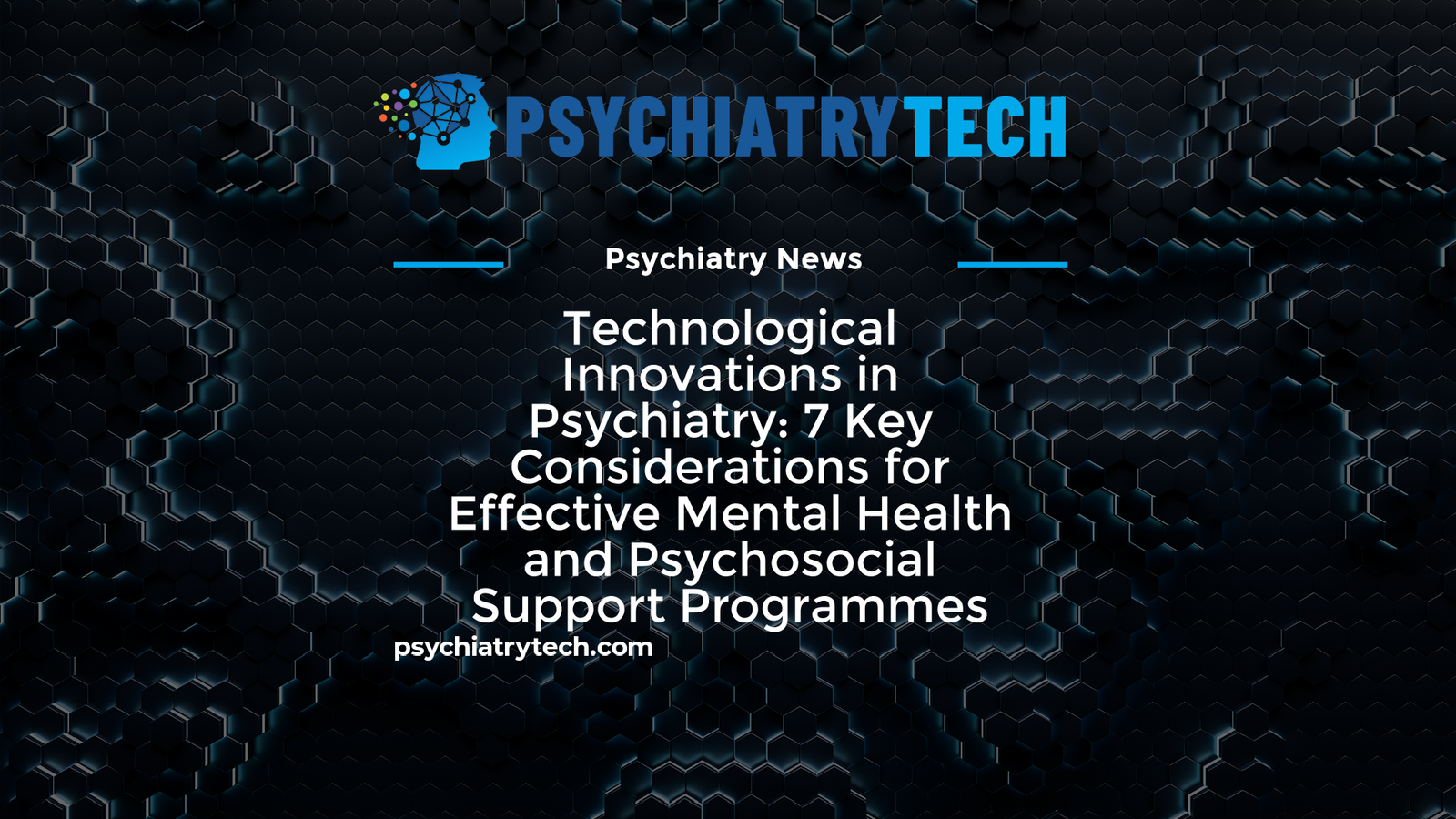Technological Innovations in Psychiatry: 7 Key Considerations for Effective Mental Health and Psychosocial Support Programmes
Technology is rapidly advancing and is now playing a crucial role in mental health and psychosocial support programmes. Innovations in technology have led to significant improvements in the way mental health professionals deliver care to patients. New tools and trends are emerging, and it is important for mental health professionals to stay up-to-date with these developments. In this blog post, we will discuss seven key considerations for effective mental health and psychosocial support programmes using technology.
1. Collaboration is Key

Discover The World's MOST COMPREHENSIVE Mental Health Assessment Platform
Efficiently assess your patients for 80+ possible conditions with a single dynamic, intuitive mental health assessment. As low as $12 per patient per year.
Innovations in technology have made it possible for mental health professionals to collaborate more effectively. Collaboration is critical in providing comprehensive mental health care, and technology has made it easier to do so. Collaborative software can bring together different mental health professionals to work on the same patient case. This software can also sync up patient progress reports, appointments and treatment plans among different clinicians. This way, it provides a seamless and consistent care plan.
2. Remote Mental Health Services
Technology has made it possible for mental health professionals to offer remote mental health services. These services include telepsychiatry and teletherapy, which provide remote access to mental health professionals. Many remote mental health services are provided through video conferencing, which is convenient for both patients and mental health professionals. Patients can receive mental health services in the comfort of their own homes, while mental health professionals can offer care to patients from anywhere in the world.
3. Mobile Applications
Mobile applications for mental health are on the rise, particularly in remote and rural areas. These apps can provide a host of services, including stress management, tracking moods, and tracking medication schedules. Some apps also have features like QA sessions with a licensed therapist. However, it’s important to note that some apps do not provide therapy, so they serve only as supportive tools and are not a replacement for mental health evaluations and treatments.
4. Artificial Intelligence
Artificial intelligence is changing the landscape of mental health treatment. Artificial Intelligence (AI) technology can analyze and predict patient behavior. This helps mental health professionals understand patterns in the patient’s behavior, which can be used to develop more personalized treatment plans. AI can monitor patients in real-time and can alert clinicians if patients exhibit concerning symptoms like suicidal behavior.
5. Virtual Reality Therapy
Virtual Reality (VR) therapy is increasingly becoming a popular option for the treatment of post-traumatic stress disorder (PTSD), anxiety, and depression. VR technology can re-create traumatic events for Veterans or other individuals, in a therapeutic context to help them overcome their emotional and physical symptoms. VR therapy, in combination with other therapies, can also help patients experience situations which might be too challenging to face in real life. This way, VR technology provides a safe and controlled environment for mental health professionals to work on desensitizing their patients to the world they fear.
6. Data Analytics
Data analytics allow mental health professionals to identify trends and patterns in large datasets. These analytics help clinicians customize treatment plans for individual patients. By using data analytics, mental health professionals can use patient data to identify new treatments that work across a broad range of patients.
7. Integrated Electronic Medical Records
Electronic medical records (EMR) allow mental health professionals to deliver more efficient and seamless care for their patients. EMR systems help mental health professionals to keep track of patients’ medical histories, and treatment plans in real-time, eliminating guesswork. EMR can also help mental health professionals to coordinate care with other healthcare professionals, such as primary care physicians or social workers, assisting with respective diagnoses concerning medication interactions and contraindications.
The Future of Mental Health Technology
The evolution of technology brings a world of possibilities in mental health care. These technological developments can improve treatment effectiveness, provide access to more comprehensive treatment options and provide mental health care to underserved populations. Each of the seven key considerations for effective mental health and psychosocial support programmes presented here has the potential to enhance patient care exponentially.
What do you think will be the next great breakthrough in Mental Health technology? Share your experience with mental health tech innovations in the comments below and lets help to bring technology to the forefront of mental health.

